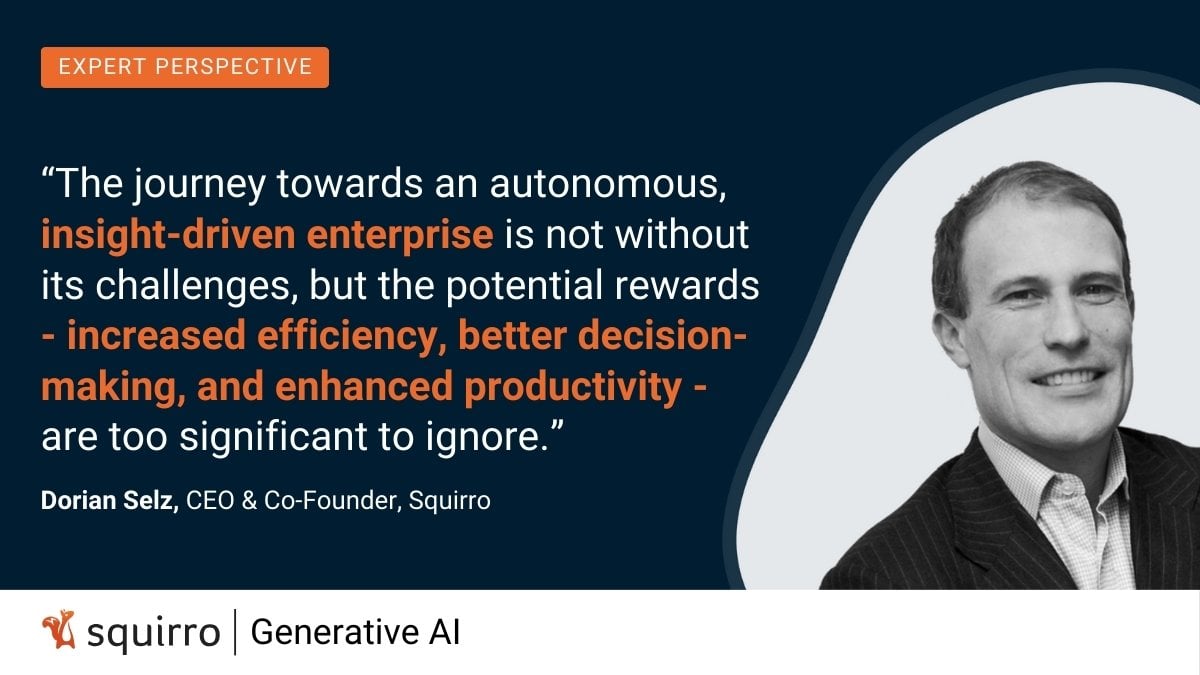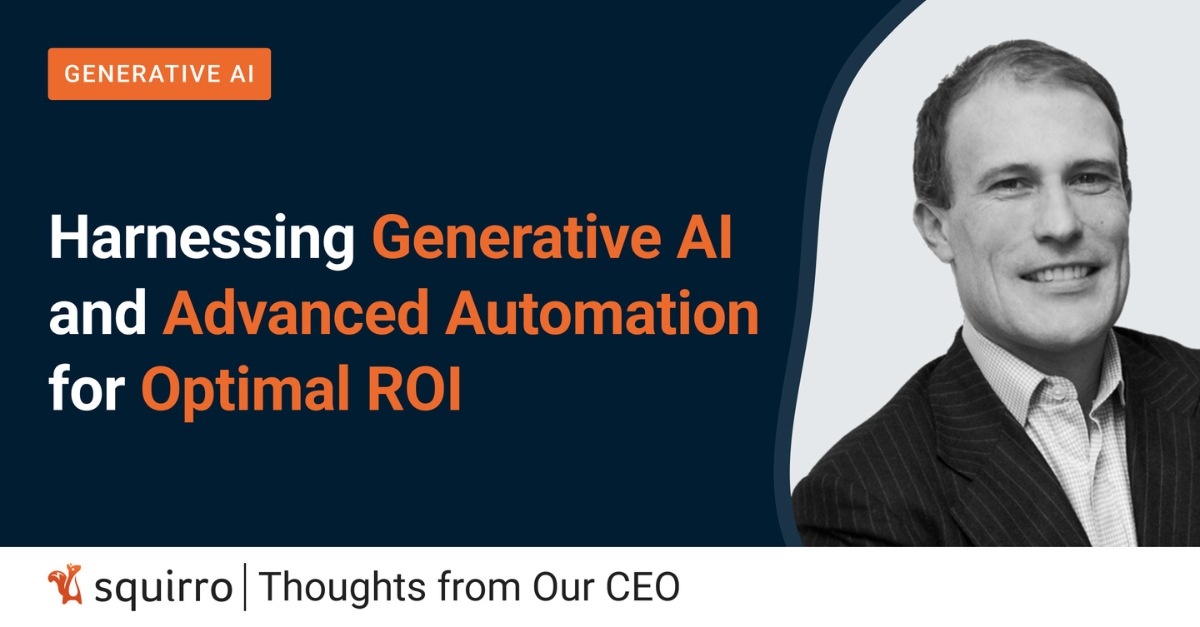In the realm of executive inquiry, a perennial question persists: "Why has our gross margin suffered, and what steps should we take?" The answer to this query rarely presents itself as straightforward, especially in the modern enterprise landscape—it traverses multiple domains, including supply chain, production, sales, and customer service.
In a previous article exploring the history and evolution of automation redefined by AI technologies, we highlighted the realm of technological innovation and placed a pivotal aspect on advanced automation as well as autonomization. Within the enterprise architecture, autonomization implies explicitly a higher level of intelligence and decision-making capability within automated systems. In this article, we will reveal more layers.
Introducing an Insight and Autonomization Layer
Autonomization goes beyond mere automation by incorporating elements of AI, machine learning, and decision-making algorithms to empower systems to make independent decisions based on predefined rules or learn from data. Of course, this means that it has a degree of self-governance. Let's have a closer look at how this affects enterprise strategies.
Generative AI for an Interconnected, Intelligent Enterprise
As I write, Generative AI (GenAI) capabilities push the boundaries of what's possible, extending the technology's reach beyond simple chat functionalities to encompass problem-solving, personalization, and automation.
Although chat functionalities are somewhat subject to overhype, GenAI stands out for its groundbreaking capabilities that truly drive transformative change within an enterprise. Unlike simple chat, GenAI's imminent potential lies in its ability to drive tangible and substantial changes within organizational structures and processes.
Today's enterprise systems are often large, unwieldy, and siloed. Data within these systems is typically unstructured, scattered, and of a different character in each system, making interoperability difficult.
A few years ago, the first band-aid was developed: Robotic Process Automation (RPA). And yet— I simplify— if the specific robotic process can't be followed, RPA fails. The key reason for this is the ambiguous nature that is found in enterprise data sets. This leads to inefficiencies and errors, further complicating the task of understanding and acting upon data insights.
The Retrieval Augmented Generation (RAG)
As we navigate through 2024, the essential role of Retrieval Augmented Generation, more commonly known as RAG technology, becomes increasingly evident. RAG's capability to inject any internal or external knowledge base you determine necessary significantly enhances decision-making. Simultaneously, this is done by providing comprehensive, contextually relevant information, distinguishing it from LLMs, and making RAG technology well-suited to enterprise environments.
Imagine a scenario where AI enterprise systems engage in dialogue to tackle business challenges autonomously. The enterprise can effectively address ambiguity within its data ecosystem by leveraging a comprehensive RAG+++ stack (more details about this are at the bottom of this article). Combining several technologies into an RAG+++ stack allows us, for the first time ever, to deal with this enterprise ambiguity.
A prime example of this concept in action is the fusion of human expertise and machine intelligence demonstrated in our Autonomy layer. Like an Air Traffic Controller orchestrating aircraft operations, this layer facilitates dynamic decision-making within complex business environments.
The integration of an Insight and an Autonomization Layer serves as the central nervous system of any enterprise, interpreting diverse data streams and driving actionable insights and automated responses. The result? A more interconnected and intelligent enterprise that responds to the evolving demands of the business landscape.
The integration of GenAI and Retrieval Augmented Generation technologies elevate enterprises to a more interconnected and intelligent state, driving optimal ROI. Here is what is possible with our solution:
The advent of Generative AI signifies a paradigm shift, propelling many industries towards a future where cutting-edge AI capabilities augment human potential. As these technologies evolve, the synergy between human expertise and AI-driven insights promises to impact an enterprise's top and bottom lines significantly.

Testing and Implementing RAG in Your Enterprise
If our strategies surrounding Generative AI and RAG have sparked your curiosity, there's more to uncover. Here are our top resources for C-level leadership and senior IT professionals:
- This white paper is the perfect introduction to RAG and its capabilities in an enterprise: Discover why you need Retrieval Augmented Generation in 2025
- Get your copy of The Successful Enterprise Search & Generative AI Buyer and transform your data into actionable insights with Squirro - a trusted solution provider for central banks.
At Squirro have been pioneering RAG technology to empower enterprises across various industries. We offer an in-depth look at how it enhances enterprise use cases with Squirro - a trusted solution provider for leading organizations, including central banks.
Tap into our expertise and leverage our client success cases. Reach out here to get started:







